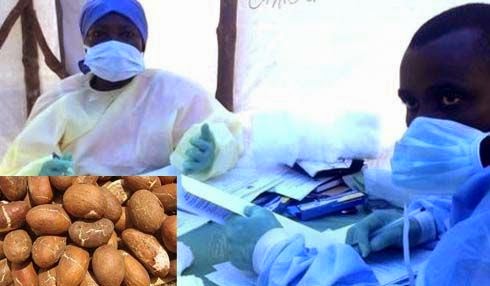10 Cancer Symptoms Women Shouldn’t Ignore
When Caryl Engstrom, 49, found a lump in her right breast, she knew
something was wrong. Despite a normal mammogram 2 months earlier and
recent breast exams by her internist and gynecologist, who found nothing
amiss, Engstrom knew she needed to call her doctor right away. “I just
had a gut feeling. It was a sizable lump and just didn’t feel right to
me.”
Engstrom’s suspicions turned out to be correct when a biopsy revealed she had stage 2 breast cancer.
Although almost 65% of women over 40 have had a mammogram in the last 2 years, according to the CDC, cancer isn’t always caught by screening tests.
And when women do suspect something, fear sometimes prevents them from seeing a doctor right away, says Beth Y. Karlan, MD. She’s the director of the Women’s Cancer Research Program at Cedars-Sinai’s Samuel Oschin Comprehensive Cancer Institute in Los Angeles. Or women downplay or misinterpret symptoms that could point tocancer.
“They say, ‘Oh, this bloating is nothing. It can wait,’” Karlan says. “There’s this idea that if you look into it, if you acknowledge the symptoms, then something is going to change in your life, and you don’t want it to change.
“But warning signs do not mean cancer,” she adds. “Even if you have all of them. There are many other benign diagnoses or physiological changes that can also cause warning signs.” For instance, you can have bloating, low back pain, and pelvic pressure and just have fibroids, Karlan says.
But if your symptoms are “persistent and progressive,” she says, “meaning you wake up every morning and feel something and it has you worried — even for 2 weeks in a row — it really is worth calling your physician and having it checked out.”
Regular checkups and screening tests such as Pap smears and mammograms, as well as knowing your own body, are all crucial for good health, Karlan says.
Which changes are worth bringing to your doctor’s attention? We’ve asked experts about the symptoms you need to keep on your radar screen.
1. Breast Changes
“If you feel a lump, you shouldn’t ignore it, even if your mammogram is normal,” says Carolyn Runowicz, MD. She’s a breast cancer survivor and past president of the American Cancer Society. If your nipple gets scaly or starts flaking, that could indicate Paget’s disease of the nipple, which is linked to an underlying cancer in about 95% of cases. Any milky or bloody nipple discharge should also be checked out.
Dimpling of the skin over the breast, particularly if it looks like the skin on an orange, “is something to be worried about,” Karlan says. Such dimpling is most often linked to inflammatory breast cancer, a rare, usually aggressive cancer characterized also by swollen, hot, red breasts.
Expect your doctor to do a breast exam and medical history, followed by a mammogram and most likely a sonogram. Depending on the results of both tests, your doctor might do a biopsy.
2. Irregular Bleeding
Once you hit menopause (defined as 12 months without a period), any postmenopausal bleeding is a warning sign, says Runowicz. “Any bleeding, staining, little drops on your underwear, or big clots are abnormal and should be immediately investigated,” she says. Such bleeding could indicate something as benign as an endometrial polyp or something more serious like endometrial or cervical cancer.
Bleeding that is unusual for you — spotting outside of your normal menstrual cycle or heavier periods — should be looked into, Karlan says. Around menopause, abnormal bleeding is often tied to hormonal shifts, though more serious problems could be the cause, which is why all abnormal vaginal bleeding should be checked. Expect to receive a transvaginal sonogram and perhaps a biopsy.
3. Rectal Bleeding
Colon cancer is the third most common cancer in women. One of the hallmarks is rectal bleeding, which many people link to hemorrhoids, the most common cause. “But it’s not always that,” Karlan says. Red or dark blood in your stool warrants a visit to your doctor, she says.
Your doctor will likely do a rectal exam and order a colonoscopy if you’re 50 or older, and perhaps if you’re younger.
4. Discharge
A foul or smelly vaginal discharge could be a symptom of cervical cancer, says Runowicz. The discharge may contain blood and may occur between periods or after menopause. It’s best not to self-treat a discharge with over-the-counter medications, she says.
An exam is necessary to determine if the discharge is due to an infection or something more serious.
5. Bloating
“Ovarian cancer is the No. 1 killer of all the reproductive-organ cancers,” Karlan says. “For years it’s been known by the misnomer of the silent killer, and we really need to put that aside. Ovarian cancer clearly has symptoms.”
The four most frequent are:
- bloating
- feeling that you’re getting full earlier than you typically would when eating
- changing bowel or bladder habits, such as urinating more frequently
- low back or pelvic pain
It’s not unusual to have one or two of these symptoms occasionally, particularly after a big meal. But if you have two or more symptoms daily for more than 2 weeks, call your doctor.
Expect a pelvic exam, transvaginal sonogram, and perhaps a blood test to check for cancerous cells.
Engstrom’s suspicions turned out to be correct when a biopsy revealed she had stage 2 breast cancer.
Although almost 65% of women over 40 have had a mammogram in the last 2 years, according to the CDC, cancer isn’t always caught by screening tests.
And when women do suspect something, fear sometimes prevents them from seeing a doctor right away, says Beth Y. Karlan, MD. She’s the director of the Women’s Cancer Research Program at Cedars-Sinai’s Samuel Oschin Comprehensive Cancer Institute in Los Angeles. Or women downplay or misinterpret symptoms that could point tocancer.
“They say, ‘Oh, this bloating is nothing. It can wait,’” Karlan says. “There’s this idea that if you look into it, if you acknowledge the symptoms, then something is going to change in your life, and you don’t want it to change.
“But warning signs do not mean cancer,” she adds. “Even if you have all of them. There are many other benign diagnoses or physiological changes that can also cause warning signs.” For instance, you can have bloating, low back pain, and pelvic pressure and just have fibroids, Karlan says.
But if your symptoms are “persistent and progressive,” she says, “meaning you wake up every morning and feel something and it has you worried — even for 2 weeks in a row — it really is worth calling your physician and having it checked out.”
Regular checkups and screening tests such as Pap smears and mammograms, as well as knowing your own body, are all crucial for good health, Karlan says.
Which changes are worth bringing to your doctor’s attention? We’ve asked experts about the symptoms you need to keep on your radar screen.
1. Breast Changes
“If you feel a lump, you shouldn’t ignore it, even if your mammogram is normal,” says Carolyn Runowicz, MD. She’s a breast cancer survivor and past president of the American Cancer Society. If your nipple gets scaly or starts flaking, that could indicate Paget’s disease of the nipple, which is linked to an underlying cancer in about 95% of cases. Any milky or bloody nipple discharge should also be checked out.
Dimpling of the skin over the breast, particularly if it looks like the skin on an orange, “is something to be worried about,” Karlan says. Such dimpling is most often linked to inflammatory breast cancer, a rare, usually aggressive cancer characterized also by swollen, hot, red breasts.
Expect your doctor to do a breast exam and medical history, followed by a mammogram and most likely a sonogram. Depending on the results of both tests, your doctor might do a biopsy.
2. Irregular Bleeding
Once you hit menopause (defined as 12 months without a period), any postmenopausal bleeding is a warning sign, says Runowicz. “Any bleeding, staining, little drops on your underwear, or big clots are abnormal and should be immediately investigated,” she says. Such bleeding could indicate something as benign as an endometrial polyp or something more serious like endometrial or cervical cancer.
Bleeding that is unusual for you — spotting outside of your normal menstrual cycle or heavier periods — should be looked into, Karlan says. Around menopause, abnormal bleeding is often tied to hormonal shifts, though more serious problems could be the cause, which is why all abnormal vaginal bleeding should be checked. Expect to receive a transvaginal sonogram and perhaps a biopsy.
3. Rectal Bleeding
Colon cancer is the third most common cancer in women. One of the hallmarks is rectal bleeding, which many people link to hemorrhoids, the most common cause. “But it’s not always that,” Karlan says. Red or dark blood in your stool warrants a visit to your doctor, she says.
Your doctor will likely do a rectal exam and order a colonoscopy if you’re 50 or older, and perhaps if you’re younger.
4. Discharge
A foul or smelly vaginal discharge could be a symptom of cervical cancer, says Runowicz. The discharge may contain blood and may occur between periods or after menopause. It’s best not to self-treat a discharge with over-the-counter medications, she says.
An exam is necessary to determine if the discharge is due to an infection or something more serious.
5. Bloating
“Ovarian cancer is the No. 1 killer of all the reproductive-organ cancers,” Karlan says. “For years it’s been known by the misnomer of the silent killer, and we really need to put that aside. Ovarian cancer clearly has symptoms.”
The four most frequent are:
- bloating
- feeling that you’re getting full earlier than you typically would when eating
- changing bowel or bladder habits, such as urinating more frequently
- low back or pelvic pain
It’s not unusual to have one or two of these symptoms occasionally, particularly after a big meal. But if you have two or more symptoms daily for more than 2 weeks, call your doctor.
Expect a pelvic exam, transvaginal sonogram, and perhaps a blood test to check for cancerous cells.




Comments
Post a Comment